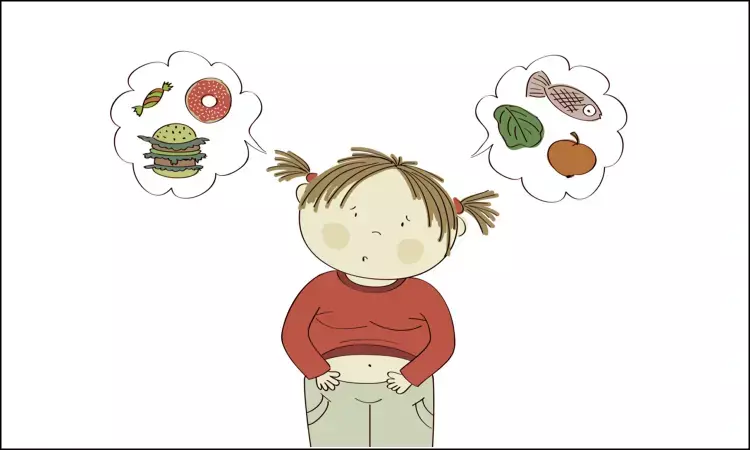- Home
- Medical news & Guidelines
- Anesthesiology
- Cardiology and CTVS
- Critical Care
- Dentistry
- Dermatology
- Diabetes and Endocrinology
- ENT
- Gastroenterology
- Medicine
- Nephrology
- Neurology
- Obstretics-Gynaecology
- Oncology
- Ophthalmology
- Orthopaedics
- Pediatrics-Neonatology
- Psychiatry
- Pulmonology
- Radiology
- Surgery
- Urology
- Laboratory Medicine
- Diet
- Nursing
- Paramedical
- Physiotherapy
- Health news
- Fact Check
- Bone Health Fact Check
- Brain Health Fact Check
- Cancer Related Fact Check
- Child Care Fact Check
- Dental and oral health fact check
- Diabetes and metabolic health fact check
- Diet and Nutrition Fact Check
- Eye and ENT Care Fact Check
- Fitness fact check
- Gut health fact check
- Heart health fact check
- Kidney health fact check
- Medical education fact check
- Men's health fact check
- Respiratory fact check
- Skin and hair care fact check
- Vaccine and Immunization fact check
- Women's health fact check
- AYUSH
- State News
- Andaman and Nicobar Islands
- Andhra Pradesh
- Arunachal Pradesh
- Assam
- Bihar
- Chandigarh
- Chattisgarh
- Dadra and Nagar Haveli
- Daman and Diu
- Delhi
- Goa
- Gujarat
- Haryana
- Himachal Pradesh
- Jammu & Kashmir
- Jharkhand
- Karnataka
- Kerala
- Ladakh
- Lakshadweep
- Madhya Pradesh
- Maharashtra
- Manipur
- Meghalaya
- Mizoram
- Nagaland
- Odisha
- Puducherry
- Punjab
- Rajasthan
- Sikkim
- Tamil Nadu
- Telangana
- Tripura
- Uttar Pradesh
- Uttrakhand
- West Bengal
- Medical Education
- Industry
Psychiatric Co-morbidities and Body Shape Dissatisfaction common in obese adolescents: Study

According to researchers, it has been recently observed that psychiatric co-morbidity and body shape dissatisfaction are common in obese non-treatment seeking adolescents and warrants need for comprehensive evaluation and management of these issues, as published in the Indian Journal of Pediatrics.
Hence, Arumuganathan S and colleagues from the Department of Psychiatry, Karpagavinayaga Institute of Medical Sciences and Research Centre, Mathuranthagam, Tamil Nadu, India conducted this study with the main objective to compare the psychiatric co-morbidity and Body image disturbances of obese adolescents with age and gender matched normal weight controls.
The authors carried out a case control study which was conducted in a school in New Delhi. Nine hundred seventy six students were screened for height and weight and body mass index (BMI) was calculated. Thirty one consenting obese students as per International Obesity Task Force (IOTF) guidelines and 31 age and gender matched normal weight students were recruited for the study.
Semi-structured questionnaires were used to assess socio-demographic details, psychiatric co-morbidity using the Mini International Neuropsychiatric Interview- child and adolescent version (MINI-KID), and body image disturbances by Body Shape Questionnaire- the 8 items shorter version (BSQ-8C). The authors examined the relationships between variables measured on these scales and anthropometric data.
The results revealed-
a. Of the 976 students screened, 33 (3.38%) students were obese; 21 boys (3.25%) and 12 girls (3.65%).
b. Of the 31 consenting obese subjects and an equal number of age and sex matched controls included in the study, 68% and 7% of them were diagnosed with a DSM-IV disorder based on MINI-KID respectively.
c. The most common diagnosis in the obese group was social phobia (36%) followed by specific phobia (19%) and major depressive disorder (19%).
d. Ninety percent of the obese samples expressed concern over body shape as against 29% in the control subjects.
e. Among obese subjects, 36% expressed mild concern, another 36% expressed moderate concern and 19% expressed marked concern over body shape.
Therefore, the authors concluded that "Psychiatric co-morbidity and body shape dissatisfaction are common in obese non-treatment seeking adolescents and warrants need for comprehensive evaluation and management of these issues to manage the epidemic of adolescent obesity in India."
Dr. Nandita Mohan is a practicing pediatric dentist with more than 5 years of clinical work experience. Along with this, she is equally interested in keeping herself up to date about the latest developments in the field of medicine and dentistry which is the driving force for her to be in association with Medical Dialogues. She also has her name attached with many publications; both national and international. She has pursued her BDS from Rajiv Gandhi University of Health Sciences, Bangalore and later went to enter her dream specialty (MDS) in the Department of Pedodontics and Preventive Dentistry from Pt. B.D. Sharma University of Health Sciences. Through all the years of experience, her core interest in learning something new has never stopped. She can be contacted at editorial@medicaldialogues.in. Contact no. 011-43720751
Dr Kamal Kant Kohli-MBBS, DTCD- a chest specialist with more than 30 years of practice and a flair for writing clinical articles, Dr Kamal Kant Kohli joined Medical Dialogues as a Chief Editor of Medical News. Besides writing articles, as an editor, he proofreads and verifies all the medical content published on Medical Dialogues including those coming from journals, studies,medical conferences,guidelines etc. Email: drkohli@medicaldialogues.in. Contact no. 011-43720751


